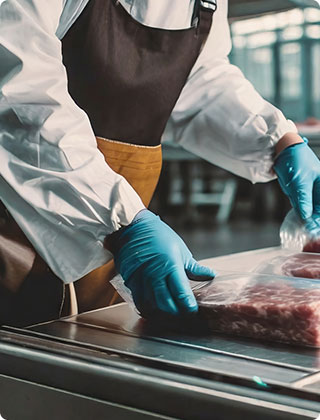MENU


Mold in commercial food preparation operations may taint food and ruin the processing environment. Mold thrives in warm, wet processing areas with biological ingredients. This can cause widespread food contamination, endangering customers.
Ingesting moldy food can cause allergic responses, respiratory difficulties, and other major health complications. Moreover, mold infestations can lead to costly product recalls and disposal, significantly damaging a business's profitability.
The reputational harm from such accidents may be long-lasting, as customer confidence is hard to restore once eroded. It's vital for food processing plants to undertake strong hygiene and environmental control measures to avoid mold formation. Regular inspections, sufficient ventilation, and rigorous cleaning practices are vital in keeping a mold-free workplace. This not only assures the safety and quality of the food items but also safeguards the company's brand and financial stability.
Mold growth in places that make food can have very bad effects on the safety and quality of the food. Mycotoxins are poisonous chemicals made by some types of mold that can make people sick and can spread through food.
For mold control, commercial food processing factories are obliged to carefully follow tight criteria imposed by government authorities and industry standards. The major purpose of these rules is to guarantee that food items are safe for ingestion and free from contamination, including mold.
A vital component of complying with these requirements is the frequent testing and commercial mold inspection for mold within the business premises. This entails constant monitoring for any indicators of mold in the manufacturing environment, which is commonly undertaken by both internal quality control teams and external regulatory organizations.
Additionally, food processing industries are obliged to adopt preventive measures such as maintaining regulated settings to suppress mold formation, employing air filtering systems, and ensuring ideal humidity levels. Employee training and knowledge on safe food handling, storage procedures, and the need for mold avoidance are also crucial to these control methods.
Moreover, adequate documentation and record-keeping of inspections, testing findings, and any remedial measures done are vital for regulatory compliance and easing audit processes. In case of any mold breakouts, rapid reaction measures are put into place to enable speedy containment and treatment, hence limiting the danger of contamination.
By following these thorough rules, food processing plants may successfully manage the danger of mold, ensure consumer health, and maintain the high standards anticipated in the food business.
Knowing which areas of a building are prone to mold growth helps avoid and monitor it. Moisture-rich places like near water-using processing equipment, cooling and refrigeration units, and fresh product storage facilities are high-risk.
Poor ventilation creates wet, stagnant situations favorable for mold growth.
Besides these places, various steps in the food processing chain may pose additional dangers. Mold contamination can occur during raw material handling and processing, especially if the materials are inherently damp.
Focusing on these weak and high-risk regions helps food processing industries control mold hazards and ensure product safety and quality.
When checking for mold in business settings, it's important to use the right method. O2 Mold Testing does different kinds of mold tests, such as air sampling, surface sampling, and moisture & leak detection. Each method has its own benefits, and the one that is used depends on the building's needs and the type of mold that is thought to be present.
Taking preventative actions is critical and is equally necessary as doing frequent inspections for mold to ensure a mold-free workplace. This comprehensive strategy covers numerous critical practices.
Firstly, reducing the humidity level is vital, since mold flourishes in damp environments. Keeping the humidity at an optimum level considerably minimizes the chance of mold formation.
Additionally, providing proper ventilation throughout the room is crucial for preventing the stagnant, wet conditions that mold enjoys.
Regular cleaning and sanitizing are also crucial in mold avoidance. This periodic maintenance helps to eradicate possible mold spores and inhibits their development.
Moreover, teaching personnel on mold detection and avoidance is crucial. This requires teaching personnel to spot early indications of mold and learn the required procedures to avoid its spread. Such vigilance is vital in swiftly treating any possible mold concerns before they grow into worse ones. By incorporating these procedures into routine operations, the danger of mold in any workplace may be considerably avoided.
For a food preparation business to be successful in the long term, it needs to pay for regular commercial mold testing and inspections by professional mold testing companies like O2 Mold Testing of Rockville. This proactive method not only makes sure that health and safety rules are followed, but also keeps the company's image and bottom line safe.
A top mold testing company in Rockville, O2 Mold Testing, stresses how important it is for business food preparation facilities to have thorough mold inspections and tests. O2 Mold Testing uses cutting-edge tools and methods to find and get rid of mold effectively, focusing on high-risk areas and weak spots. If you hire our mold testing experts to do your business mold testing and inspections, you can be sure that the area where you process food is safe, legal, and fruitful.